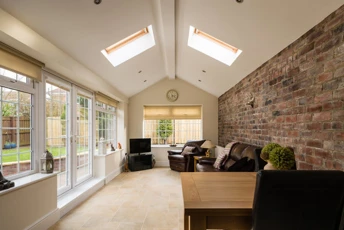A mortgage term refers to the length of time over which you agree to repay your loan. In the UK, mortgage terms can range from 25 to 35 years, although shorter and longer terms are also common. The choice of term length primarily depends on your financial situation and preferences. Shorter terms result in higher monthly payments but lower overall interest costs, while longer terms mean lower monthly payments but more interest paid over the life of the loan.
Reasons why you may want to extend the term of your mortgage
Lower monthly payments
The most common reason for extending the term of a mortgage is to reduce monthly payments. Life can throw unexpected financial challenges your way, and having lower monthly payments can ease the strain on your budget. This can be especially beneficial during periods of financial hardship, or when you need to redirect funds towards other priorities, such as education or healthcare expenses. As mentioned previously, however, a longer term will result in more interest paid over the duration - so whilst your monthly payments may be lower, you’re paying more in the grand scheme of things.
Affordability
Changing your mortgage term can make homeownership more affordable. This can be particularly helpful for first-time buyers who may be stretching their budgets to get on the property ladder. By choosing a longer term, you can purchase a home that suits your needs without overburdening yourselves financially.
Reasons you may want to shorten the length of your mortgage
Yes, it is possible to change the length of your mortgage. Shortening your mortgage term can offer several advantages, including:
Save on interest
The longer your mortgage term, the more interest you'll pay. By reducing the term, you can save a substantial amount in interest payments.
Build equity faster
With a shorter mortgage term, you'll build home equity more quickly, which can be beneficial if you plan to move or remortgage in the future.
Pay off debt faster
Shortening the term allows you to pay off your mortgage debt faster, which can provide financial security and peace of mind.
Pay less interest
A shorter mortgage term typically means you'll pay less interest. This is because you should pay your mortgage off quicker.
How to extend the term of your mortgage
Changing the term of your mortgage is not always straightforward and may depend on your lender's policies and your financial situation.
Remortgaging
One way to extend your mortgage term is to remortgage your property. This involves applying for a new mortgage with a longer term and potentially lower interest rates. It's essential to shop around for the best deals and consider the associated costs, such as arrangement fees and early repayment charges.
Contacting your adviser
If you wish to extend your current mortgage term with your existing lender, contact one of our expert mortgage advisers to discuss your options.

How to shorten the term of your mortgage
Increase payments
One of the most straightforward ways to shorten your mortgage term is to increase your monthly payments. Paying more than the minimum amount required can help you pay down the principal balance faster. Although this method may incur an early repayment charge.
Remortgage
If your financial situation allows, you may be able to remortgage to a shorter-term. For example, you might remortgage from a 30-year mortgage to a 15-year mortgage. Remortgaging is the process of taking out a new mortgage, with a different lender, compared to a Product Transfer which is the process of taking out a new mortgage with the same lender.
Changing the mortgage term
Changing the term of your mortgage can be a practical solution for managing your finances and adapting to life's changing circumstances.
However, it's crucial to weigh the pros and cons carefully, consult with one of our expert mortgage advisers, and explore all available options to make an informed decision that aligns with your long-term financial goals.
Important information
Your home may be repossessed if you do not keep up repayments on your mortgage.
There may be a fee for mortgage advice. The actual amount you pay will depend on your circumstances. The fee is up to 1% but a typical fee is 0.3% of the amount borrowed.
You may have to pay an early repayment charge to your existing lender if you remortgage.
Related Articles
Getting ready to remortgage
Timing is key when it comes to remortgaging, and it’s never too early to start thinking about it.
A guide to extending your home
Are you considering an extension to give you that extra bit of space but not sure what to do?
How does remortgaging work?
Learn exactly what remortgaging is, how it works and the important things to consider.
No posts currently available







